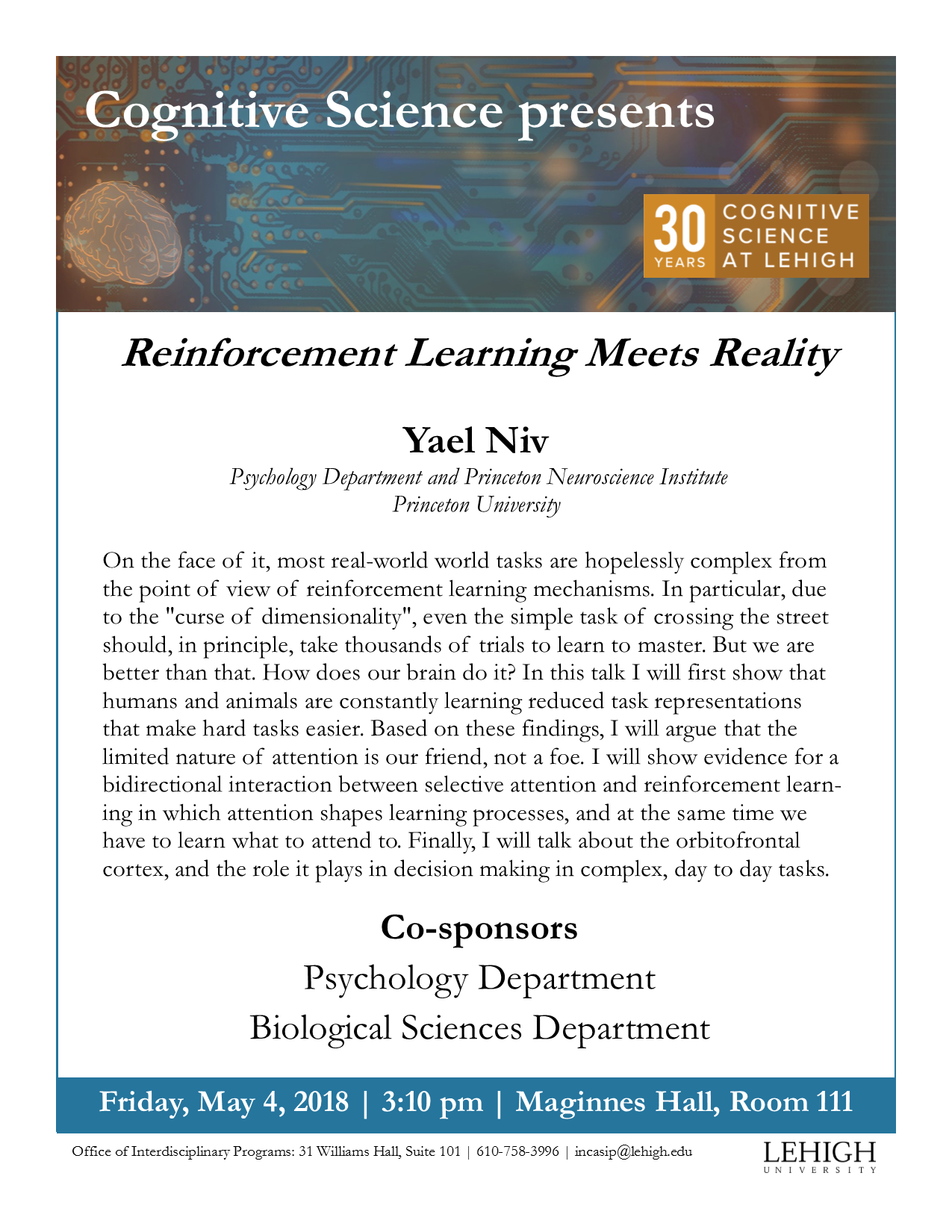Friday, May 4, 2018 - 3:10pm
Place:
Maginnes Hall, Room 111
Yael Niv
Psychology Department and Princeton Neuroscience Institute
Princeton University
On the face of it, most real-world world tasks are hopelessly complex from the point of view of reinforcement learning mechanisms. In particular, due to the "curse of dimensionality", even the simple task of crossing the street should, in principle, take thousands of trials to learn to master. But we are better than that. How does our brain do it? In this talk I will first show that humans and animals are constantly learning reduced task representations that make hard tasks easier. Based on these findings, I will argue that the limited nature of attention is our friend, not a foe. I will show evidence for a bidirectional interaction between selective attention and reinforcement learning in which attention shapes learning processes, and at the same time we have to learn what to attend to. Finally, I will talk about the orbitofrontal cortex, and the role it plays in decision making in complex, day to day tasks.
Co-sponsors
Psychology Department
Biological Sciences Department

